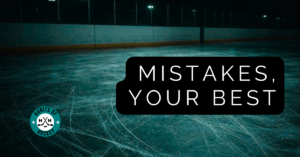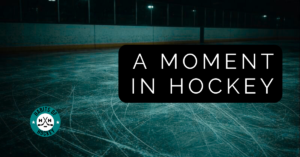
Mindset
Mistakes, YOUR BEST, and the Moment
Mistakes are going to happen.They happen in hockey. They happen in life. There is no avoiding them. What matters most isn’t that a mistake happened,

Mistakes are going to happen.They happen in hockey. They happen in life. There is no avoiding them. What matters most isn’t that a mistake happened,

Road trips are an essential part of hockey, but they can challenge even the best players’ eating habits.
With fast food and junk options at every turn, staying on track requires intention and strategy.
Read on to elevate your road trip nutrition!

A Moment in Hockey 🏒 Player of the game in the biggest win of the season. Sunday afternoon, high stakes matchup between a AAA team

Holiday breaks are a time for family, rest, and recharging — but for hockey players, long breaks can also create setbacks. Skills fade. Conditioning drops.